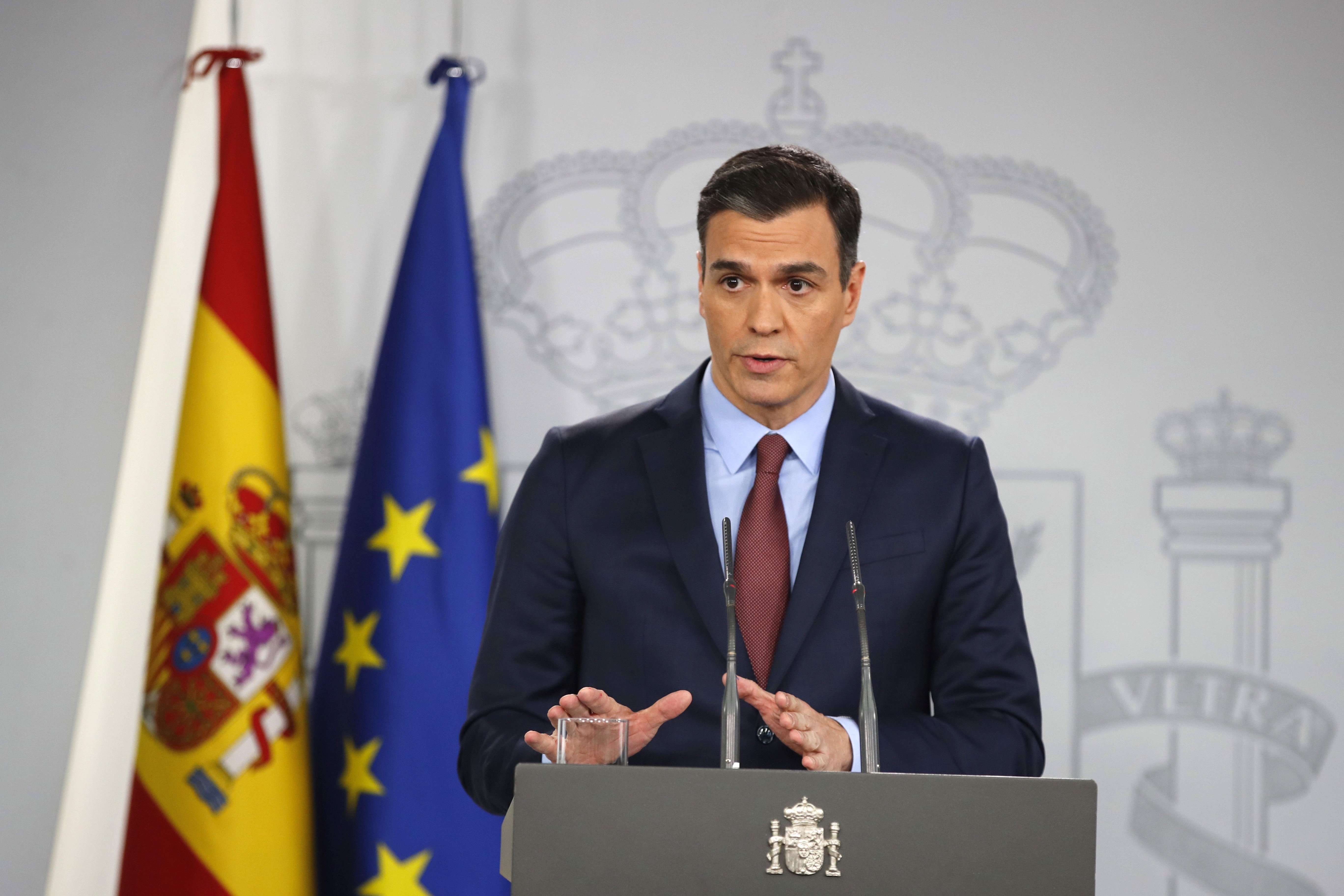[An UPDATED version of this article in English is available here]
Spain's state of alarm declared due to the coronavirus crisis now has tangible content. It has been revealed this Saturday during an extraordinary meeting of Pedro Sánchez's cabinet which is still continuing this afternoon. The measures, according to a draft of the decree to which ElNacional.cat has had access, include an almost total prohibition on movement by the population during the period of the state of alarm, which will be for at least fifteen days, with the possibility of extension. The public will only be able to move around for essential activities, such as buying food or pharmaceutical products. After coming late to the management of a crisis that has got out of control, the Spanish government is now rushing to take steps to contain the pandemic. The measures do not include the isolation of the main source of contagion: the region of Madrid. They will come into force when they are published in the Spanish government gazette, except those relating to transport, which will become valid on Monday at 8am.
The set of measures is broad, and it involves a great deal of recentralization of power. The closure of businesses and premises, already announced by some regional governments, is being extended throughout the Spanish state. Spain's armed forces are mobilized and placed under the supervision of the interior ministry. The police of the autonomous regions, such as Catalonia's Mossos d'Esquadra, will also come under the direction of Spanish interior minister Fernando Grande-Marlaska. Three more ministers will have powers to act over the autonomous communities.
As far as mobility is concerned, according to the draft decree, while the state of alarm continues, members of the public will only be able to go outside for the following activities
a) Acquisition of food, pharmaceuticals and basic necessities.
b) Visits to healthcare centres.
c) Travel to one's workplace in order to work.
d) Return to one's place of habitual residence.
e) Assistance to and care of the elderly, minors, dependents, people with disabilities or especially vulnerable people.
f) Travel to banking institutions
g) Due to force majeure or situation of need.
h) Any other activity of a similar nature duly justified.
The mobility of vehicles for these activities or for refueling at petrol stations will also be allowed. The decree concludes that "in any case, in any movement the recommendations and obligations dictated by the health authorities must be respected".
In addition, the Spanish interior minister has the power to close highways, or sections of them, "for reasons of public health, safety or traffic flow".
And transport?
Public transport is not closed down, but it is reduced. "The operators will reduce the overall total supply of operations by at least 50% (or between 40-60%, given that with the reduction of tickets that can be sold per vehicle, total mobility will be greatly reduced"), says the draft. Public road, rail, air and sea passenger transport services that are subject to public contracts or public service obligations will reduce their total offer by at least the following percentages:
I. Commuter train services: 50% (40-60% option).
II. Medium distance train services: 50% (40-60% option).
III. Medium-distance train services AVANT: 50% (40-60% option).
IV. Regular road passenger transport services: 50% (40-60% option).
Under command of the interior minister
The decree states that "the members of the State Security Forces and Corps, the Police Corps of the Autonomous Communities and Local Corporations will be under the direct orders of the head of the Ministry of the Interior, for the purposes of this decree, to the extent necessary for the protection of persons, goods and places, and may impose on them services that are extraordinary in terms of their duration or nature." These police officers, including those of Catalonia's Mossos d'Esquadra, "will be able to carry out checks on people, goods, vehicles, premises and establishments" to prevent prohibited activities from being carried out.
In the same way, the Army is being mobilized, with the ability to act to "ensure the proper operation" of the provisions of the state of alarm decree, and in particular with regard to measures to guarantee food supply.
This provision with regard to police officers is also replicated with regard to healthcare personnel. The draft states that "all the authorities of the public administrations" in Spanish territory, "and in particular the health authorities", as well as the civil servants and workers who are in their service, will be under the orders of the Spanish health minister, Salvador Illa, when "it is necessary for the protection of people, property and places."
Ministries above communities
Apart from the Spanish prime minister, the key authority figures will be the defence minister, Margarita Robles, the interior minister, Fernando Grande-Marlaska, the transport minister, José Luis Ábalos, and the health minister, Salvador Illa. According to the decree, "they are qualified to make the necessary agreements, resolutions, provisions and instructions". These "acts, provisions and measures" may be adopted "ex officio or motivated by the request of the regional and local authorities" and "will not require any administrative procedure". In the case of health, the powers are currently fully transferred to Spain's autonomous communities, but the state will recover them if it is necessary.

